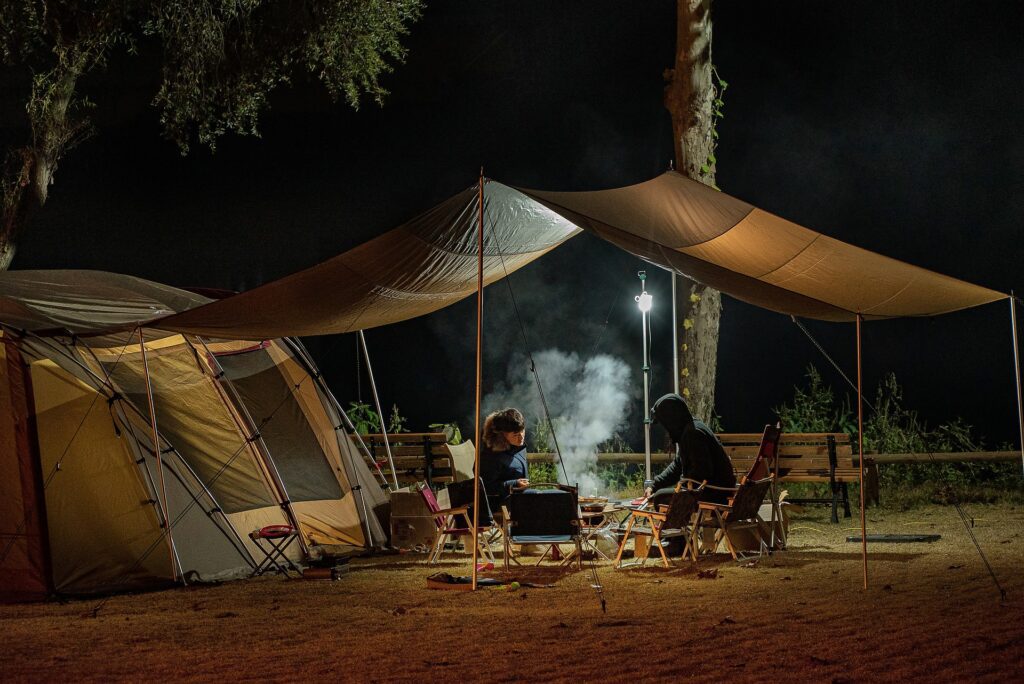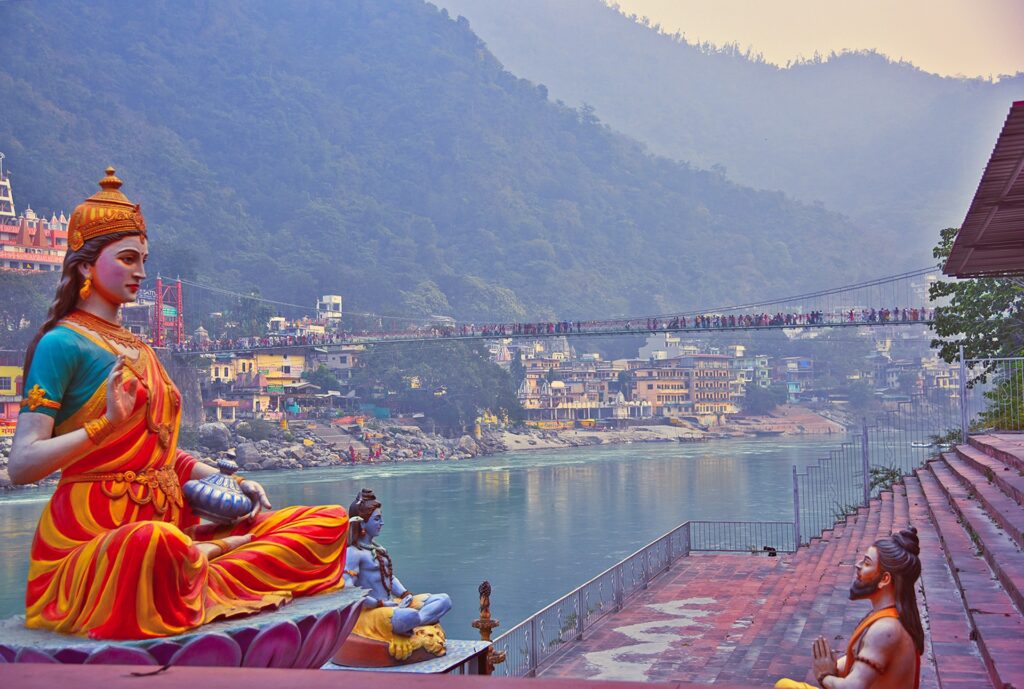Summer is just around the corner – time for getting away from it all. What better way to get in touch with nature than to go camping. We asked Ed and Bernie (our experienced camper friends) for their expert advice on camping. So, if you’re planning a camping trip (alone or with family and friends), check out their “Tips for Camping” before you go.
Before Camping
- Research your camp location and fun things to do in the area. Consider the needs and interests of those going camping with you.
- Get maps of the area, campsites and trails.
- Go to a good outdoor adventure store before your trip and check out their clothing, hiking boots, sandals, etc to get some good ideas. Think layering for clothing and appropriate footwear.
- Buy or borrow a good sleeping bag and/or air mattress (see more details under “During Camping”).
- Research what facilities are provided or close by. Or take everything you need and deal with what you encounter.
- Take a bicycle. It’s a good taxi and an enjoyable outdoor option.
- If you are new to camping, don’t buy too much equipment. Make it simple and easy. The more stuff you bring, the more there is to unpack, lose and then repack.
- Make a reservation or get there early in the day. Most campgrounds don’t completely book up, but there’s a lot of “first-come first-served.”
- Avoid the holidays if you can. It is usually amateur hour. People want to hoot and holler as much as they can in the shortest period of time.
- Start with trips close to home. No sense driving four hours to find out you don’t like camping or the campground is awful.
- Bring plenty of water and other “appropriate beverages” along on the trip.
- Make sure your flashlights work and you have extra batteries. Check before leaving.
During Camping
- When picking a site, try to get a visual on where the facilities are and who your neighbors might be. Their habits may affect you.
- Pay attention to where you are. You’re not in Kansas anymore!
- Make your meals simple. Everything tastes good outdoors; just make sure you have enough. Avoid cooking with fats; clean up may be difficult in the dark without hot water. Here you may want to break the rules and say “screw the environment” – bring paper plates. Clean up is simply starting the fire!
- Dress in layers. It may be warm during the day, but at night under tree cover, it can get nippy, especially if you are normally used to a soft life. Many thin layers are much better than one thick layer and you can adjust the layers to your comfort level. And remember the two most important sources of warmth are your hat and good socks, i.e. the parts of the body furthest from the heart. Jeans are not good in the cold or heat, unless you’re a lumberjack. They also don’t dry out.
- Get a good sleeping bag. It is better to be too warm (you can always unzip the bag) than too cold. Although my family takes issue with me on this point, I feel you are warmer inside a good bag with fewer clothes. One reason you can get chilled is if sweat collects inside your cotton clothing while you sleep, and then evaporates. So either wear little or wear breathable non-cotton fabrics.
- Campgrounds range from a close commune with nature to just awful. It is nearly impossible to know about any given campground without visiting it. Books and the internet are sometimes helpful, but in the end you have to be your own judge on things like acceptable notice levels, privacy, amenities (flush/pit toilets, shower/no showers, etc).
- Sure it’s cheating, but we often travel to a close-by town while camping to buy dinner and then bring it back to the site. Burritos travel especially well, fast foods do not (cold chicken or French fires are icky). Check out local specialties too (bakeries, etc).
- Please observe the campground rules. When the campground says no firewood gathering, don’t. As tempting as it is to pick up a downed stick, you are removing a wonderful home for bugs and other natural life. Buy wood at the camp host. Or, ask yourself, “do I really need a fire at all?” We often skip them altogether, instead playing games or talking by lantern, or admiring the stars, until it’s time to go to bed.
- No food or toiletries where you sleep. Bears can smell seven times (7x) better than a dog which can smell four times (4x) better than a human (roughly).
- Put all your food in a locked car at night or whenever you are away from the campgournd… bears, raccoons and other critters are very resourceful and used to humans visiting their turf. A trip can be ruined quickly if your cooler is attacked.
- During the adventure, keep a running list of what equipment needs fixing, what supplies ran out, what items were missing. When you get home, take action on the list; giving your next camping trip the opportunity to have new and different problems.
- Bring an air horn. It’s fun, but mostly it’ll scare the crap out of noisy animals (and your neighbors)! Seriously, an air horn might be useful in the deep backcountry where one might encounter a bear, however 95% of the time, the worst wildlife you’ll probably see is birds, squirrels, and an occasional raccoon.
- Be considerate of your neighbors.
- Remember that voices really travel in the woods… and at night. You will immediately learn this from the people camping on either side of you as you must listen to their conversations. Speak quietly— no radios or music at all, ever, so as to do not add to the din.
- Get a good air mattresses — it’s worth every penny you pay. And get a mattress pump that plugs into your car lighter; forget those stupid hand pumps. Bring pillows with real pillowcases, a wonderful luxury at night.
- Count on not sleeping well the first night camping. Too hot, too cold, too lumpy, the air mattress leaks, strange noises, etc. You’ll live. The second night is much better.
- Plan fun day trips away from the site. Make lunches right after breakfast and keep them in the cooler. Then whenever the mood strikes, lunch is ready and easy.
- In a tent at night remember to allow some ventilating as sleeping humans give off water vapor. This can collect inside the tent making things wet.
- Bring good shoes. Hiking (boots), beach (sandals), or an urgent run to the restroom at midnight (slip-ons) all have different needs.
- Bring a book, kick back, listen to nature and look around you. I would hope you’re camping to get away (unless it’s a group camp or family frolic and then you’re hosed… you’ve got to go with the flow.
- Clean up after yourselves. Leave the campsite as you found it.
- Relax and have fun. Yup, it’s not the genteel comforts of home, but allow yourself the luxury of being on the sun’s cycle. Enjoy the quiet of the woods and admire the majesty of a very tall tree. If you have kids, camping will not only expose them to the beauty of the natural world, studies have shown that kids who camp have increased self-confidence.
- Think dawn to dusk….get on nature’s clock. Sunrises and sunsets are terrific. Quiet time is usually after 8-10pm… depending on location.
- Take lots of pics!
After Camping
- Clean up your camping gear when you get home so it’s ready for your next camping trip.
- Share your Camping Photos and Videos. Upload your Digital Camping Pictures and Videos to Instagram, Twitter, Facebook, TikTok, Google Photos, Apple Photos, or iCloud.
Have FUN… and watch out for the bears!
If you have any Camping Tips that you’d like to share, please feel free to Add a Comment.


